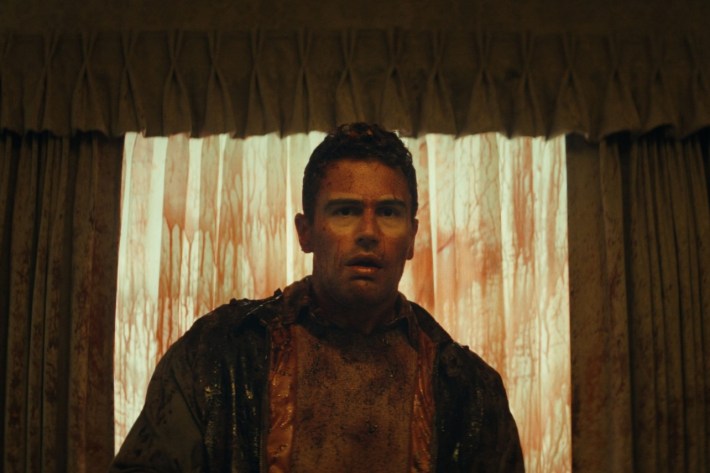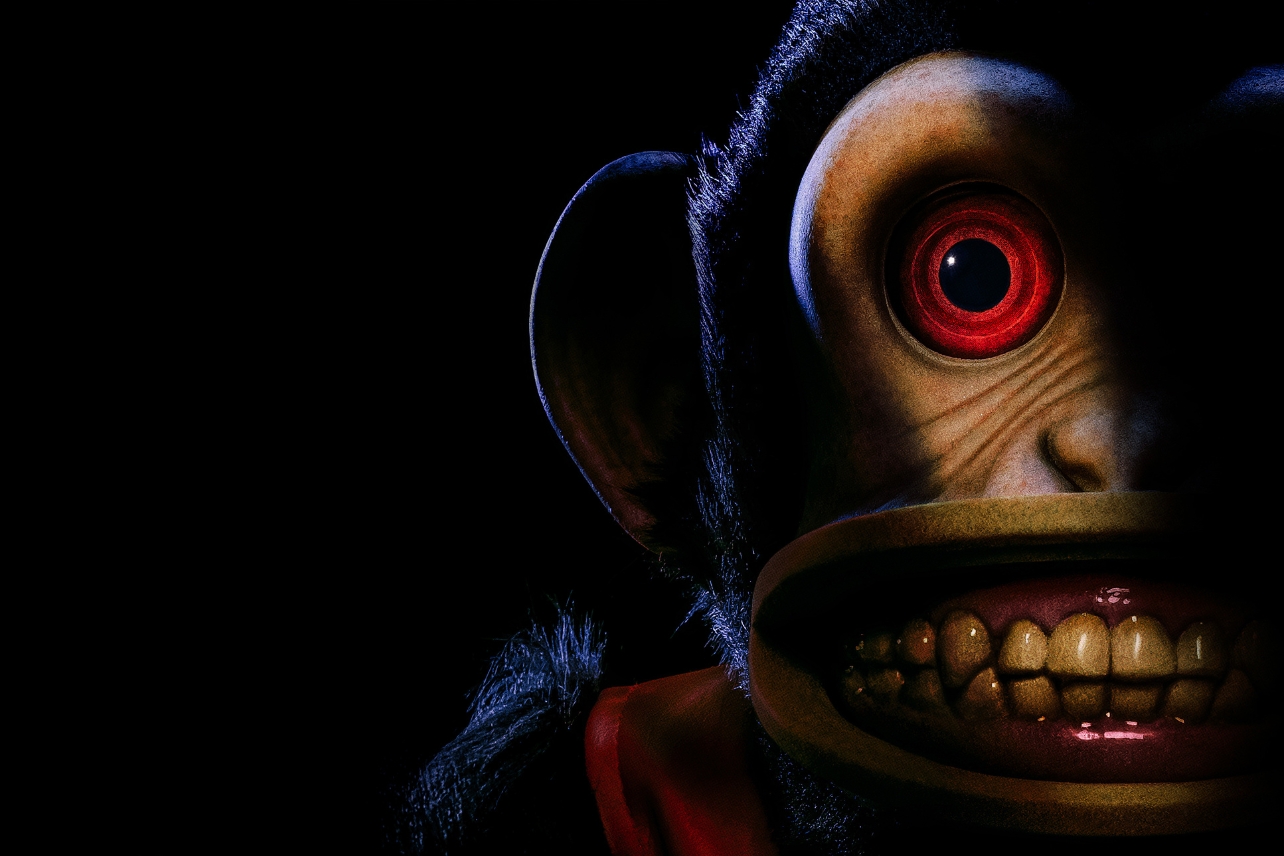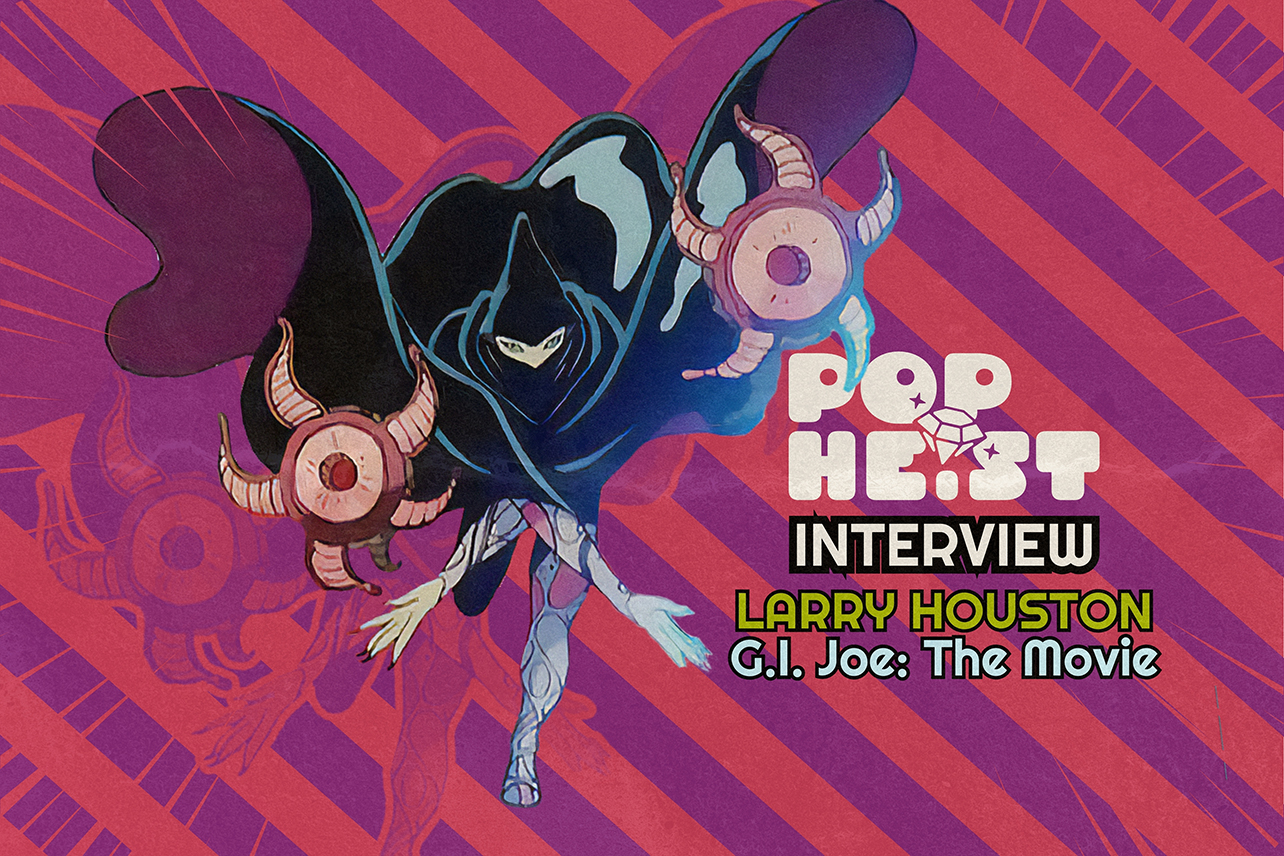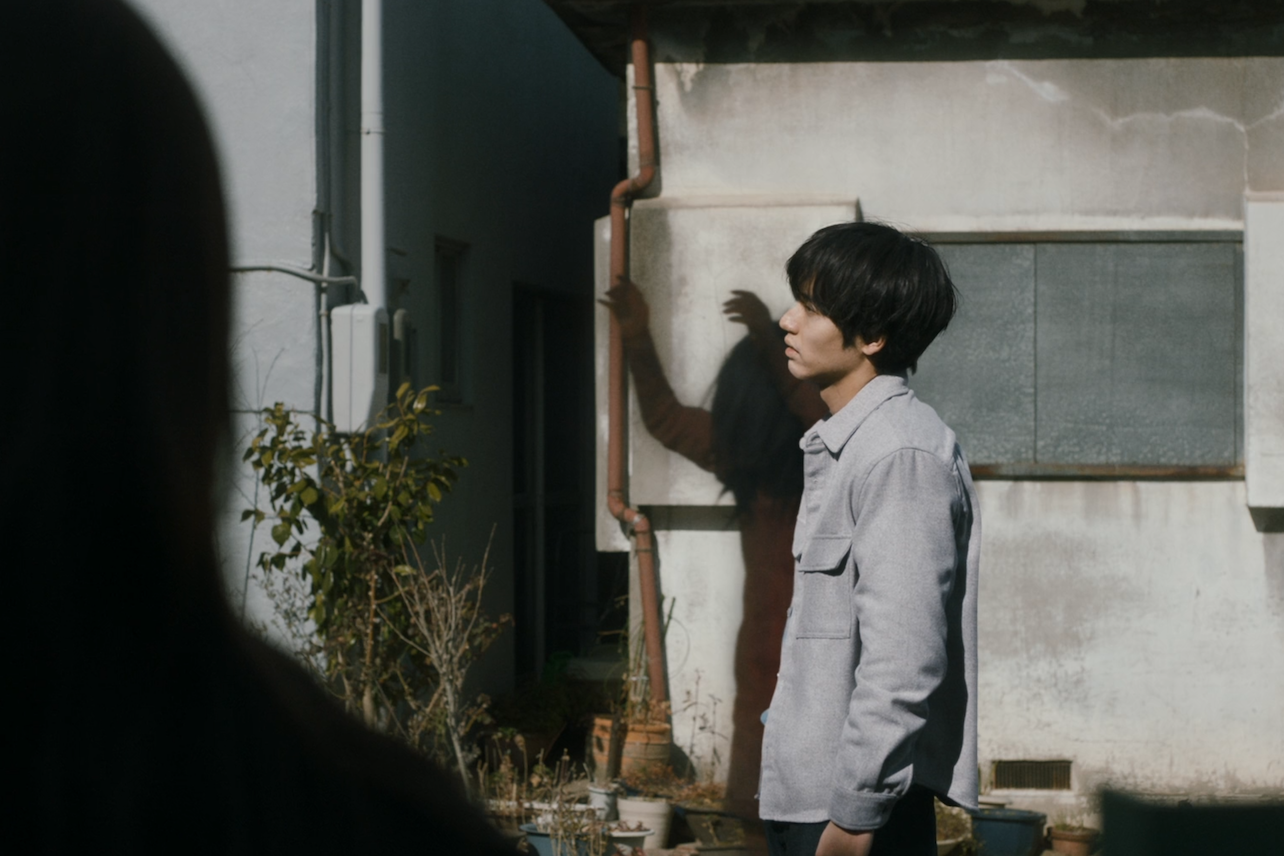The Monkey
Writers: Screenplay by Osgood Perkins, based on the short story by Stephen King
Directors: Osgood Perkins
Cast: Theo James, Tatiana Maslany, Christian Convery, Colin O'Brien, Rohan Campbell, Sarah Levy, Adam Scott, Elijah Wood
Comedy, like drumming, is all in the timing. With The Monkey, Osgood Perkins attempts to shift tempo from his typical dreamy mumblegore to raucous horror comedy. Unfortunately, the sticks repeatedly go flying into the pit in this not-especially-funny, off-kilter funeral dirge.
On paper, Stephen King's short story — originally published in 1980, then revised for his 1985 collection Skeleton Crew — seems like ideal material for Perkins, perennial spelunker of grief. It's a clear sendup to "The Monkey's Paw" by W.W. Jacobs — a preoccupation for King, as he also channeled its wish fulfillment horrors for Pet Sematary around the same time. Here, a toy monkey exhibits a knack for exacting death on its owners' friends and loved ones, with little regard for the owners' wishes.
The monkey never physically murders anyone, merely clanging its cymbals together at the same time each victim succumbs to a seemingly deterministic fate, often well across town. Thus, the deaths register as freak accidents to all but those directly aware of the toy and its curse. How culpable are the monkey's owners? Is it truly random, or does intentionality play into this at all? This examination is well within Perkins's thematic wheelhouse, where death is swift, cruel, and shows up unannounced.
Plus, there's mom and dad stuff, and that's everything behind the curtain for the Oz man. He brings his life experience to bear and we know it's a wound that doesn't heal.
From his directorial debut in The Blackcoat's Daughter through last year's Longlegs, Perkins's characters tend to inhabit full-on dissociative fugue states, and that sets the tempo. Whether they're defensively detached from a traumatic reality or literally ensorcelled by Satan, they're effectively catatonic. They sleepwalk through snowy landscapes only to emerge infrequently with sudden outbursts of extreme violence. Imagine each such break as the clash of a cymbal. Well, Perkins is launching into his bughouse Keith Moon era whether we like it or not.
Adam Scott cameos as a desperate commercial airline pilot in a proof-of-concept prologue, pleading with a pawn shop owner to take this cursed toy monkey off his hands before it kills anyone else. Brush off the Silence of the Lambs meets Fargo energy of Longlegs; we're in a bona-fide Tex Avery short, and Droopy here isn't buying. In this version, the monkey trades his cymbals for a drum, and when he brings the drumstick down, it triggers an accidental chain of events that unburdens the pawn shop owner of his bowels. In The Monkey, death is moist, gruesome, and occurs so quickly we barely have time to admire any intricate Rube Goldberg mechanism.
... except for the wasps' nest, which is intentionally teased out for comic effect, but that's much later.

We skip ahead to 1999 with Hal Shelburn and his ever-so-slightly older twin, Bill. They discover the monkey amongst the belongings of their absent father, the desperate commercial airline pilot. Hal is meek and bespectacled, frequently bullied by an all-girl clique at school. Bill is also insecure, but masks it with Tom Arnold bravado and a fiery, period-appropriate Y2K wardrobe straight out of Flavor Town. Tatiana Maslany outshines all but the monkey itself as their manic pixie dream mom. She exhibits a freewheeling absurdist abandon, and while the boys immediately latch on to her instruction that everyone, some day, dies, it takes a little longer for her innate joy in the face of life's meaninglessness to sink in.
Monkey business really starts spinning out of control when babysitter Annie Wilkes — an inexplicable nod to King's novel Misery; the character's name is Beullah in the short story — totes the boys to a teppanyaki restaurant and loses her head over a charming chef with devastating knife skills. And it's strange, because the monkey is outside alone in the car when it does its thing. But Hal seemingly knows the monkey's up to no good regardless. So it's with a good deal of misplaced guilt that the boys attend the babysitter's funeral.
Nicco Del Rio, credited as "Rookie Priest," presides over the ceremony, and his arrival at the lectern, laughing at a private joke, visibly stoned — a beat that plays so well in the film's high energy trailer — registers as totally baffling in the moment. A number of these ancillary characters feel like those friends of a student filmmaker who end up in the mix for a laugh, chuckling their way through lines in a funny voice they did at a party once. As viewers, we have no context for this nonsense. They either amuse as non sequiturs or, more often, raspberry like spent balloons.
"I was going to marry that girl," says Bill of the late Annie Wilkes, delivered with the flat certainty of Jason Schwartzman confiding to Bill Murray that Olivia Williams is his Rushmore, too. Characters detached from their extreme circumstances can be exceptionally funny. But nothing feels grounded in reality here, both when we're invited to laugh at it and when we're tasked with empathizing with heartache.
The adult Hal and Bill, both played by Theo James, are broken and estranged. In 2024, Hal is a divorced dad, spending the one week in the year he has with his teen son, Petey (Colin O'Brien). Bill? He's harboring resentment toward Hal, and in many ways, still trapped in 1999. The twins are emblematic of the two extremes at play, Bill mired obsessively in the Monkey's curse, which plays out like one of the lesser Final Destination sequels, while Hal is struggling with the self-fulfilling prophecy of repeating his absent father's mistakes. The latter is of course a much more human drama, and it was central to King's short story. Perkins fumbles the balancing act, rendering the father and son dynamics tedious, vegetables to sift through on the way to the hibachi steak.
As for the monkey business? Perkins's humor is legible — we know what he's going for — but the rhythm is simply off. These are jokes forced through Google Translate and back again. The kills are explosive, often cartoonishly broad, but again, they happen all too quickly. The monkey itself is creepy, and Perkins does deliver a handful of captivating visuals, like a giant monkey's paw grasping Hal from his bed and lifting him aloft. Bill's preoccupation with the Monkey and its fated works leads to the twin seeing its grinning visage everywhere, including upside-down and grinning from between a stripper's legs. But these moments are few and far between.
King's story has a lot to pull from, with a creepy, high concept hook, built in domestic drama, and a non-linear structure of flashbacks that could have served as blue-print for a compelling movie, not that every adaptation should be a 1:1 translation. Perkins was obviously looking for something else amidst the clockwork and stuffing. The results are a departure from his typical laconic dread, neither scary nor particularly funny. And for a horror comedy, that's a monkey-don't.






